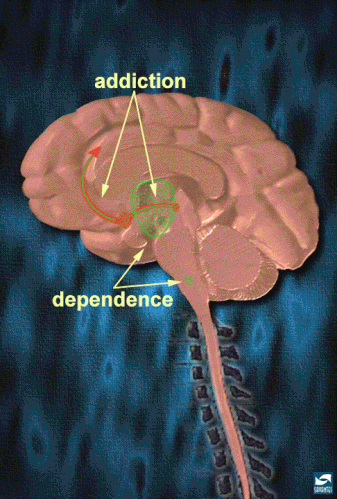Codeine is in the same opiate family as morphine and heroin. Codeine just happens to be the weakest opiate. Nevertheless, take enough and you will suffer similar side-effects and addiction. However, there is another issue, long term use of codeine usually makes no medical sense and may prevent individuals receiving better treatment or advice on how to manage chronic pain.
PS I am a chronic pain researcher.
Chris, if patients were getting better treatment or advice, then stopping them from taking codeine for a lengthy period might may sense. As things stand, there is no suggestion of any alternative to what are currently over-the-counter medications.
I am also puzzled - you state that you are a chronic pain researcher, but do not appear to delineate between dependence and addiction. Would you care to clarify your comment?
Hi Postulative,
Yes the lack of proper treatment and advice is a major problem. Whether codeine makes up for this is doubtful as it is much less effective when viewed from a long-term perspective (vs short term).
Dependence is the professionally used term for addiction.
Chris, I am very concerned that you, as a chronic pain researcher, do not recognise the difference between addiction and dependence. This speaks very poorly for the general public’s ability to recognise that these are complex issues that cannot be ignored or dealt with by three word slogans or some ‘war’ on drugs.
A very quick check of Google for ‘addiction vs. dependence’ provides a plethora of definitions delineating these terms. Even the leader and chief ringmaster of the disastrous failure referred to as the ‘war’ on drugs recognises this; the US Government’s drugabuse.gov website states that there is difference between the two, and goes on to say (emphasis added for readability):
Addiction—or compulsive drug use despite harmful consequences—is characterized by an inability to stop using a drug; failure to meet work, social, or family obligations; and, sometimes (depending on the drug), tolerance and withdrawal. The latter reflect physical dependence in which the body adapts to the drug, requiring more of it to achieve a certain effect (tolerance) and eliciting drug-specific physical or mental symptoms if drug use is abruptly ceased (withdrawal). Physical dependence can happen with the chronic use of many drugs—including many prescription drugs, even if taken as instructed. Thus, physical dependence in and of itself does not constitute addiction, but it often accompanies addiction. This distinction can be dificult [sic] to discern, particularly with prescribed pain medications, for which the need for increasing dosages can represent tolerance or a worsening underlying problem, as opposed to the beginning of abuse or addiction.
Obviously, this definition is loaded somewhat by the existing stance of the government that published it - but it is a reasonable representation of the two terms.
The same website even provides a pretty picture of a brain, claiming that addiction and dependence stem from different areas:
Addiction and dependence are very different things, classified and treated very differently by the medical profession.
You also mention concerns about whether codeine relieves pain in the long term. It certainly does in the short term, even at the lowest doses provided in over-the-counter (OTC) medication. Is this placebo? Perhaps, but it is a better and safer placebo than something like acupuncture or chiropractic - both of which have been known to result in death and neither of which has any scientific basis. It is unlikely to be solely placebo, though, given the wide range of patients who gain benefit from these low doses.
What about the long term? Well, in the long term we’re all dead - but on a slightly more serious note there are very few individuals who take codeine-containing OTC on such a regular basis as to lose the medication’s efficacy. Those who do fall into this category need to see their doctor for better solutions to their pain, and this is part of the pharmacist’s role in advising their customers.
This decision by the TGA is taking the quickest, simplest means of immediate pain relief away from people. That is not - cannot be - a decision based upon science and medicine, which says pain is bad. Pain causes all sorts of annoying side effects, and so doctors would like to get rid of it as quickly as possible. The TGA’s decision is allegedly based upon a few deaths caused not by codeine but by the admixed ingredient - ibuprofen or paracetamol - but it will not stop such deaths any more than laws against marijuana stop people from using marijuana. This decision will simply result in more pain for the average person while they wait to see a doctor, and result in greater costs for the patient and for the Australian taxpayer to treat the most basic of health problems - pain. In the meantime, any person who is wanting to misuse medications will simply find other ways to do so. This decision is unconscionable and inhumane.
Not that I care strongly about this issue, either way ![]() .
.
Very interesting and informative, Postulative - thanks!
Hi @postulative & @chriscantor[quote=“chriscantor, post:3, topic:13096”]
Dependence is the professionally used term for addiction.
[/quote]
I completely agree with @postulative that “addiction” and “dependence” are completely different from each other. A lack of understanding a fundamental principles like this would completely compromise research done involving drug/brain interactions.
When I did my psychology degree (back in the dark ages) we were taught that addiction was a mental process, whereas dependence was evidenced by a physical response(s).
Or more simply, from a simple person, addiction can be defined as requiring larger and more frequent dosages to attain the desired effect e.g heroin, alcohol; dependence implies that the dosage and frequency of dosage remains relatively constant - abstinence from the drug causes unpleasant side effects leading the person to continue the regime e.g benzodiazepines.
